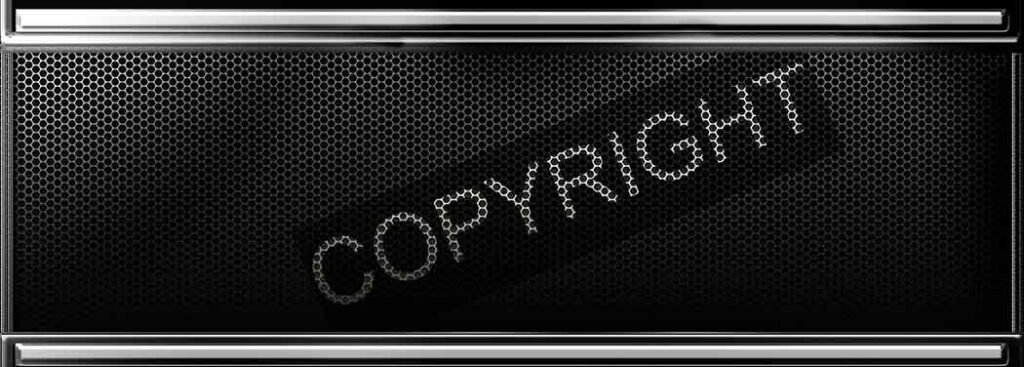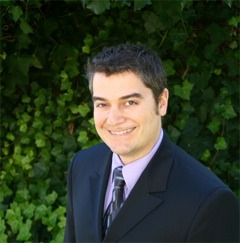How to Get a Copyright for a Nonfiction Book

Learning the ins and outs of how to get a copyright for your book is a skill that you’ll never regret acquiring.
As a nonfiction author, you want to make sure that your ideas, techniques and the unique solutions that you’ve painstakingly developed for your target audience have the best protection against unauthorized copy.
Although copyright is automatically assigned to the owner of a creative work by the mere act of creation, if you live in the U.S. you can’t sue for infringement in a court of law unless you possess a copyright certificate from the U.S. Copyright Office that proves your authorship.
Luckily, the cost of copyright registration is very reasonable and the process is easy enough that you can do it yourself, and if you want to make 100% sure that your application is error free, you can always enlist the help of a copyright attorney to file the application on your behalf.
What Protections Does Copyright Afford to Nonfiction Books?
Since as a nonfiction author you’ll be writing a book that will document your expertise and your discoveries, you’ll likely be writing about your unique ideas, methods, procedures, concepts and so on.
While the above aren’t protected by copyright in and of themselves (this kind of intellectual property may require a patent), your explanation, illustration and description of them are subject to copyright.
As a simple example, if you’re copyrighting a cookbook, your lists of ingredients are not subject to copyright protection, however the text containing your preparation and cooking instructions will be.
The same applies to any research based on information that you’ve collected. The information itself is not copyrightable, but your sorting methodology, your analysis and your conclusions are.
However, if your book contains unique names or phrases that you’ve coined to brand your solution (e.g. “The 35-Minute Workout,” “The Anxiety-Free Smoke Cessation Technique,” etc.), those will not be protected under copyright. In this case, the legal vehicle you need to protect them is a trademark.
What are the Criteria for Copyrighting a Nonfiction Book?
In order to copyright your nonfiction book:
- “You must be the author of an original work”: this means that your book must be unique and never published before.
- “Your work must be contained in a tangible medium of expression”: this means that all copies of your book must be of a permanent and reproducible nature (physical or electronic). For example, if you decide to recite impromptu poetry that you’ve never written down or documented before to someone over a phone line, and your conversation is not being recorded, then your medium of expression is considered intangible and therefore your poetry lines will not be copyrightable.
What Specific Rights Do I Gain by Copyrighting My Book?
Copyright legislation grants you the following rights as an author:
- Exclusive right for making copies of your book. You may, however, decide to grant third parties permission to reproduce your work, in part of in whole, for a limited time and/or a limited quantity in exchange for financial compensation.
- Exclusive right to distribute your book. You may grant third parties permission to distribute your work on your behalf through a mutually beneficial financial arrangement.
- Exclusive right to create derivative works from your book, such as workbooks, abridged audio versions, etc. Since derivative works also include translations, you may grant others permission to translate and distribute your book in foreign markets through a mutually beneficial financial arrangement.
Adding a Copyright Page to Your Book

Before you apply for copyright protection, you need to add a copyright page on the back of the title page in the front matter of your book. This page must include:
- A copyright notification (e.g. Copyright © <year> by <copyright owner, e.g. your name, your company name, etc.>).
- Your publisher’s name and address. If you are self-publishing, then you can create a publisher imprint, or use your business as the publisher. If you don’t want to include a physical street address, you can use a P.O. Box instead.
- Your book’s edition followed by the date of publication – Month and year will suffice (e.g. First Edition, December 2019).
- The book’s print run if applicable (e.g. first printing, second printing, etc.).
- A statement of rights (e.g. “All rights reserved. No part of this publication may be reproduced or transmitted in any form or by any means, electronic or mechanical, including photocopying, recording, scanning or otherwise, or through any information browsing, storage or retrieval system, without permission in writing from the publisher.”)
- Your book’s Library of Congress Cataloguing-in-Publication data. To request this information as a self-published author, visit: https://locexternal.service-now.com/auth.
- Permissions from other copyrighted works, if applicable (e.g. if you’re quoting an excerpt from another author in your book, you must first obtain permission in writing from their publisher and post it on this page).
- Legal disclaimers, if applicable. You’ll need to consult with an attorney to obtain the appropriate text for your nonfiction book, especially if it’s a legal requirement by a government agency (e.g. if you offer investment advice, the SEC may require that you show one or more disclaimers).
Do I Need to Register My Copyright with the U.S. Copyright Office?
Technically speaking, you own the copyright to your book the moment it’s written (provided you’ve kept time-stamped records of your creation).
In many countries, these records are sufficient to prove in a court of law that you’re the creator of the work.
However, if you live in the U.S. the courts require that you’re also in possession of a copyright certificate in order to sue a person or entity for copyright infringement.
When you register your book with the U.S. Copyright Office, you can assert your copyright from the official date of registration, so even if it takes several months for you to receive your copyright certificate in the mail, you’ll be protected from the time that your application was received and considered to be in order.
How do I Register My Copyright?
The most cost-effective way to register your copyright is to do it online by visiting: www.copyright.gov.
Once there, click on Literary Works and after the page loads click on Register a Literary Work.
Then select New User and create an account. Once your account is set up, click on Copyright Registration, then click on Register A New Claim and finally click on Start Registration and complete the required fields.
Finally, pay the copyright fee and either upload or mail in your work, depending on the on-screen instructions.
The copyright cost for a nonfiction book depends of the type of application that you need to file. The three most typical copyright applications are:
1) Single Application
The single application is the most direct way to register your book copyright, provided that you do it electronically at www.copyright.gov. The cost for the Single Application is $35.
In order to qualify for this low registration fee, you must:
- Be the only author listed on the copyright registration form. (If you’re co-authoring your book you’ll have to file a Standard Application instead)
- Register a single work. (For example, a large book split into three volumes is not considered a single work.)
- Be the sole claimant. (If you’re sharing your copyright ownership with another person or entity, you’ll have to file a Standard Application.)
- Write the book yourself. (If you’re hiring a professional writer or a ghostwriter to create the book on your behalf you’ll still be considered the copyright owner, but you’ll have to file a Standard Application).
2) Standard Application
If your book doesn’t qualify for the Single Application, then you must use the Standard Application. The cost is $55 (available online only).
3) Special Cases
Paper Applications: If you don’t want to file online, you can mail a completed Form TX (a.k.a the Literary Form) to:
Library of Congress
U.S. Copyright Office-TX
101 Independence Avenue SE
Washington, DC 20559-6000
This form can be downloaded and printed from www.copyright.gov. The fee for a paper filing is $85 and must be paid via check or money order payable to “U.S. Copyright Office.”
Expedited Application: If you need to expedite the copyright registration process (say you need a certificate on hand for an infringement court proceeding), you’ll be mailed the certificate in just one week for an expedited fee of $800.
Lawyer Application: If you would rather have a lawyer complete and submit your copyright application form to ensure no filing mistakes, expect to pay between $200 and $500 in legal fees plus the cost of filing and any other legal disbursements.
Mailing Copies of Your Book to the U.S. Copyright Office
Once you’ve completed your copyright registration, you’ll need to mail two physical copies of your book to the U.S. Library of Congress in order to fulfill their legal deposit requirement:
Library of Congress
Copyright Office
Attn: 407 Deposits
101 Independence Avenue SE
Washington, DC 20559-6600
Next Steps
After you’re done with your submission, or if you live in countries where you can bypass this step, it’s imperative that you take some time to carefully document, sort and catalog all creative evidence of your authorship.
This involves time stamping and cataloguing any type of paper notes, diagrams, charts, image sketches, mind maps, outlines, etc. plus creating a well-organized file structure on your computer where you place all electronic documents associated with your book.
Finally, back up your computer files on a USB stick and store it along with the paper documentation in a safe place.
Good luck!
If you enjoyed this article and would like to learn more about how to excel in the writing craft be sure to check out my free nonfiction writing guide, drawn from years of experience editing books for bestselling authors (including a New York Times bestseller) and ghostwriting for CEOs and politicians. Simply click here to get instant access.
Ben
Leave me a comment below if you have any questions or a specific need that I can help you address – I operate an author services firm that specializes in helping entrepreneurs, professionals and business owners who want to publish books as a calling card for prospects, to establish their status as an expert or to just to generate additional leads for their businesses.
Here are some related posts I highly recommend:
How to Write a Compelling Book in 12 Steps: A Must-Read Guide for Nonfiction Authors
How to Grow Your Business Writing a Nonfiction Book
 Bennett R. Coles is an award-winning author of six books published through Harper Collins (New York) and Titan Publishing Group (London). He is also the publisher at Promontory Press, editor for multiple bestselling authors (including a NY Times bestseller), ghostwriter for CEOs and politicians and the founder of Cascadia Author Services, a boutique full-service firm that specializes in premium author services specifically designed for busy professionals. Our end-to-end services include writer coaching, ghostwriting, editing, proofing, cover design, book layout, eBook production, marketing, printing and distribution.
Bennett R. Coles is an award-winning author of six books published through Harper Collins (New York) and Titan Publishing Group (London). He is also the publisher at Promontory Press, editor for multiple bestselling authors (including a NY Times bestseller), ghostwriter for CEOs and politicians and the founder of Cascadia Author Services, a boutique full-service firm that specializes in premium author services specifically designed for busy professionals. Our end-to-end services include writer coaching, ghostwriting, editing, proofing, cover design, book layout, eBook production, marketing, printing and distribution.







Leave a Reply